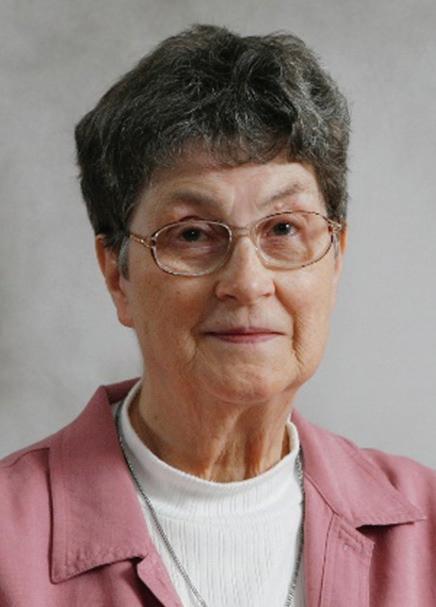
3 minute read
Parish Eucharistic Revival What Are We Reviving?
�s we move into the parish year of the Eucharistic Revival, it’s worth asking the question (again): what is a parish anyway?
After all, look at the word “revival.” You need to know what you are reviving, right?
Most of us define “parish” based on our experience of living in a parish: the good, the bad, the ugly. But if we are here and reading this article, it is usually more good than bad and ugly! We stay, and the parish is a source of identity and life for us.
But while that experience may be important and a good root, it may be divorced from the purpose of a parish.
The canon law definition of a parish is pretty simple: “A parish is a certain community of the Christian faithful stably constituted in a particular church, whose pastoral care is entrusted to a pastor (parochus) as its proper pastor (pastor) under the authority of the diocesan bishop.”
What the canon does not explain is the why. Church history – ancient and recent – does, and it’s important.
The Church began as a movement – literally a movement out of the Upper Room and into the streets at Pentecost, preaching, baptizing, praying, worshiping, following Jesus Christ. Indeed, most people initially knew them as “The Way” - a reference to Jesus Christ (“the Way, the Truth, and the Life,” as well as the journey of movement to God the Father). The Church as an institution grew carefully in the early centuries and that movement was given structure. The structure took its form as regional apostolic leaders (bishops who were apostles, or given authority from the apostles and their witness) who had ministerial helpers (the priests, who tend- ed to particular towns) and deacons (who tended especially to the poor and helped spread the message) and lay people (who worshiped, supported, invited and spread the word within families and in town). Consecrated life was a beautiful addition to our Church structure, but was formalized a bit later.
But this was Commission: to go and make disciples of all nations. Each parish was first and foremost the people of a geographical area, within set boundaries. The appointed priest is responsible for the spiritual welfare of his entire geographic area–not just the Catholics. (Think of what that looks like in a time of persecution!) Obviously the priest cannot do this alone, and calls on the help of every other baptized Christian in the boundaries. If they need help – especially bet ter teaching, the graces of the sacra ments - he serves to provide that. But first and foremost, the parish is estab lished as an evan gelical framework for sharing the good news within its boundaries, to allow the movement of the Great Commission to flourish.
The “new evangelization” - these past few decades – has been a way to reconsider how the Great Commission is lived in a secu lar world. Again, Pope Francis pointed us to the parish in The Joy of the Gospel parish is the presence of the Church in a given territory, an environment for hearing God’s word, for growth in the Christian life, for dialogue, proclamation, charitable outreach, worship and celebration. parish encourages and trains its members to be evan gelizers. It is a community of communities, a sanctu ary where the thirsty come to drink in the midst of their journey, and a outreach.” (Italics added.)
So we find ourselves sitting after an inspiring Eucharistic Congress, and in a parish year of revival. This year and beyond is aimed at reviving the astounding news that Jesus Christ is for each of you, he is the Eucharistic Lord, truly Jesus Christ present, fully God and fully man. He has a plan for us as individuals and as the Body of Christ. He saves us from our prideful self-sabotage and idolatry, sin, and calls us to repentance (that is, return). He goes after the lost in love. He heals the wounded in the way they most need. He can and will transform us from glory to glory if we fully open ourselves to receiving the call he has placed on our lives.
But guess what? That revival isn’t just for your parish’s registered parishioners. That revival is for the whole town (or your parish boundaries). The movement continues.

Susan Windley-Daoust Director of Missionary Discipleship swindley@dowr.org

So get spiritually ready. This new age of mission has been initiated by the Holy Spirit at the Pentecost, renewed in the Second Vatican Council and the New Evangelization, and revived starting now. It’s okay not to know how to share this good news because we will all learn together, and God equips the called. But, as Bishop Barron said recently, “When any Catholic institution, ministry, or outreach forgets its evangelical purpose, it has lost its soul.” That institution includes our humble parish. We are going to share that God is real in a world that doesn’t really believe that.
Come Lord Jesus, and revive us again! Fill us with your hope and love, and help us to be sons and daughters of encouragement and messengers of the Eucharistic Lord’s good news!








